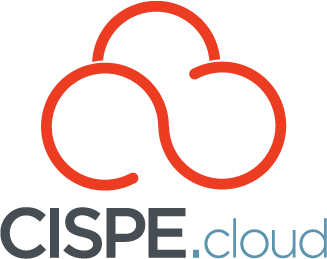Last Wednesday, the European Commission published its first Report taking stock of the EU’s progress towards the continent’s 2030 digital transformation targets, as laid out in the Digital Decade Policy Programme. Although the report shows strong growth in cloud uptake and the future potential of the sector, it still forecasts that the EU will fall short of its target of having 75% of all European businesses using the Cloud by 2030. Instead, it expects that only 66% for cloud uptake and even less for technologies dependent on the cloud, such as Big Data (34%) and AI (20%).

It is difficult to over-emphasise the importance of cloud for the future competitiveness and prosperity of the European Union. According to a study, achieving the Digital Decade targets would unlock €2.8 trillion in gross added value, 55% of which depends on cloud computing. Falling short of cloud targets would have widespread negative consequences on virtually all sectors of the EU economy, from manufacturing and agriculture to transport and energy – jeopardising both the EU’s global competitiveness and its sustainability targets.
Thankfully, it is not too late to act. Below, we lay down 3 steps that the European Commission can take (or indeed refrain from taking) right now to support the European cloud customers, stimulate cloud uptake, and thereby to set Europe back on the right path for achieving its 2030 Digital Decade targets.
- Promote fair competition in the cloud
According to recent research by renowned competition economist Prof. Fréderic Jenny, European businesses and public institutions are paying more than 20% of a ‘surcharge’ on the price of software they want to run on the cloud infrastructure of their choice. This ‘tax’ is established by legacy software companies such as Microsoft, Oracle and SAP via various unfair software licensing practices such as tying, bundling and discriminatory pricing, with the aim of forcing customers to their own cloud infrastructure.
To put a stop to these practices that hurt European customers, cloud providers and ultimately all EU citizens, CISPE filed a competition complaint against Microsoft with the European Commission in November last year. As demonstrated by Microsoft’s recent concessions, made in a different case regarding the tying of its Teams software with the Office productivity suite, even software giants can be forced to change their uncompetitive behaviour under genuine scrutiny. We therefore urge the European Commission to open formal investigations into our complaint and thereby restore fair competition to software licensing in the cloud.
- Do no harm
It is crucial that the European Commission does not undermine its work to promote the Digital Decade by introducing ill-conceived additional financial or administrative burdens on Cloud providers. One the most concerning is the idea of introducing a levy on network usage for the benefit of European ISPs. We expect that any such measure could lead to higher prices for consumers, further hindering cloud uptake.
The Digital Decade Report highlights that ‘investment gaps’ exist in many areas of the digital economy. ISPs should not use their own investment shortfalls to justify regulatory intervention.
- Ensure predictability
Cloud providers, especially SMEs, have a difficult time to ensure compliance with all the new EU rules adopted in the last few years. CISPE aims to help these efforts via our compliance tools, such as our Code of Conduct for the GDPR or our latest initiative aiming to facilitate compliance with the cloud switching and interoperability provisions of the Data Act.
However, a ‘one-stop-shop,’ summarising all the rules applicable to cloud providers in Europe would be a powerful way to reduce uncertainty and legal costs of providers in the EU. We therefore urge the Commission to publish, as soon as possible, the Cloud Rulebook and Public Procurement Guidelines for the benefit of all European businesses and public institutions alike. Both of these initiatives should be developed in cooperation with the EU cloud sector, as well as built upon existing industry initiatives such as the CISPE Cloud Procurement Handbook.
We remain committed to support the European Commission in all of these endeavours.
